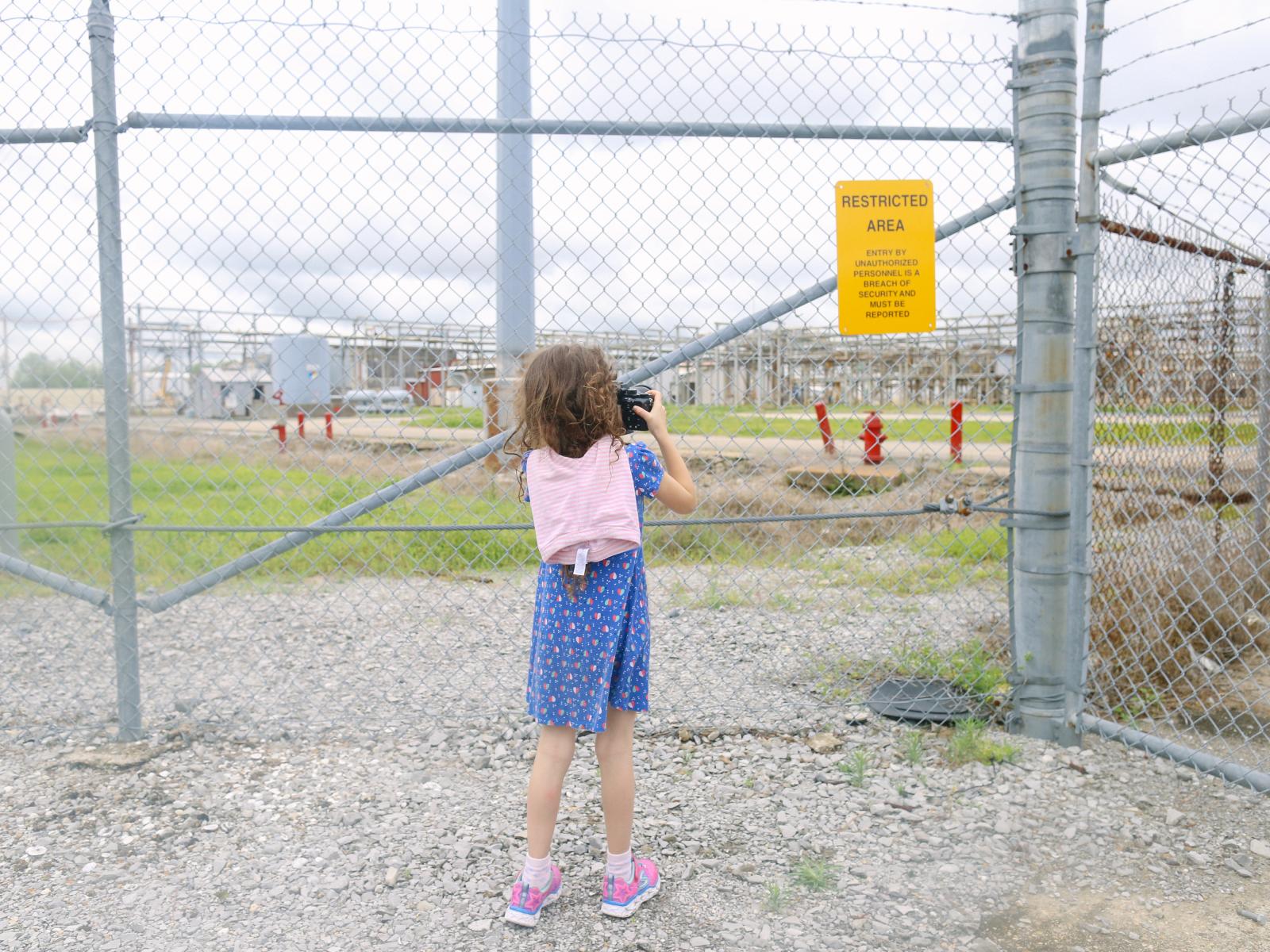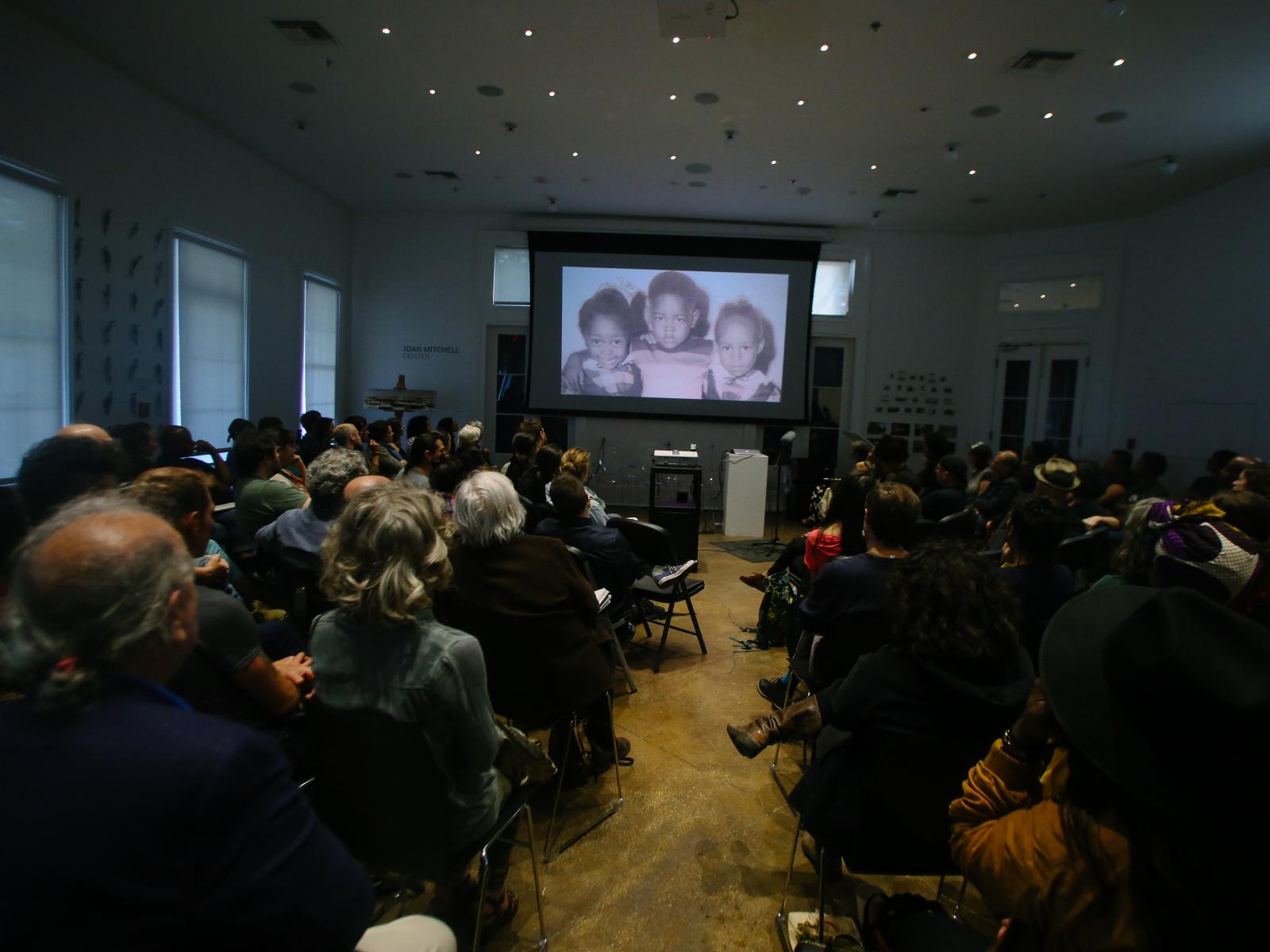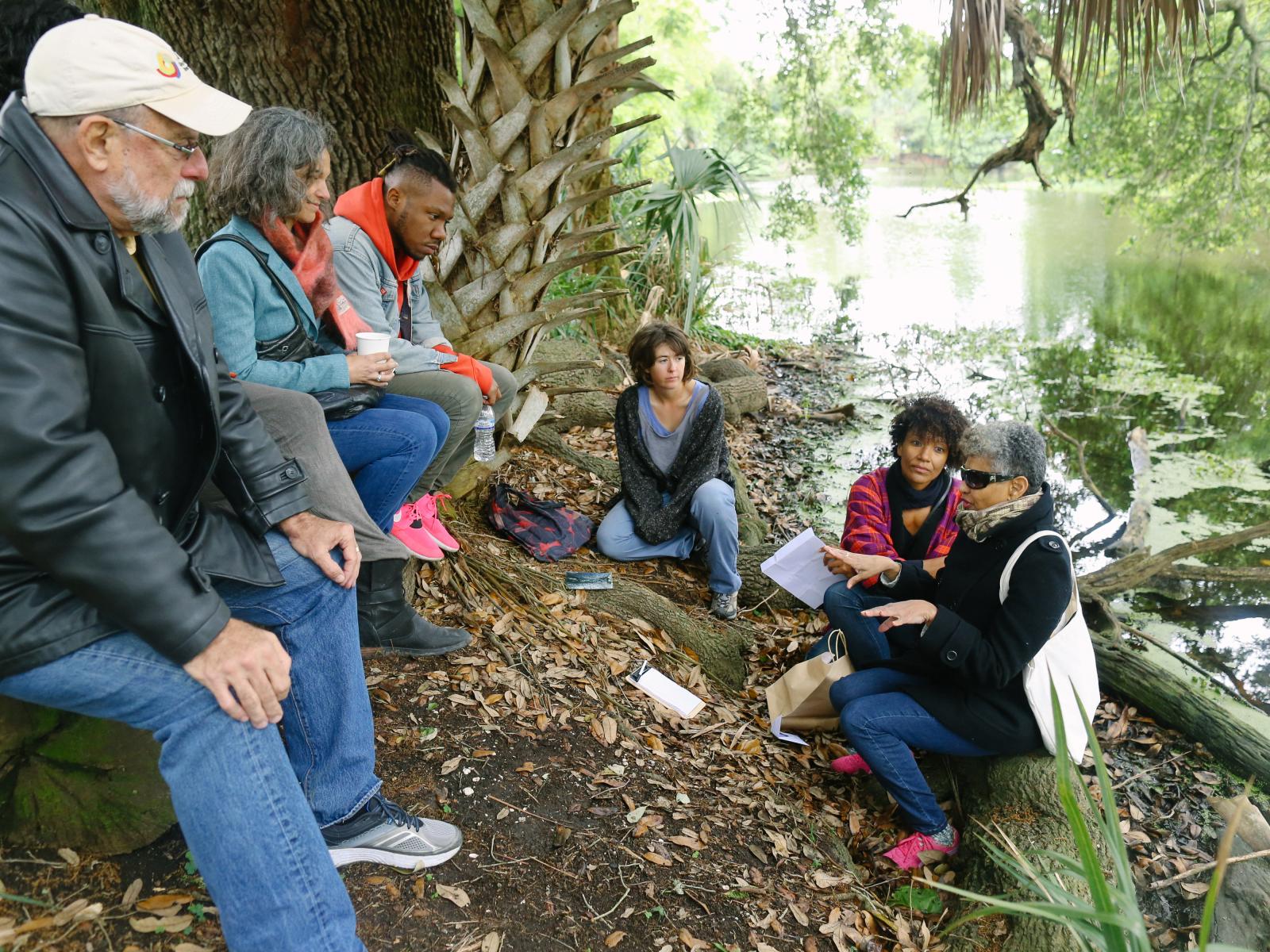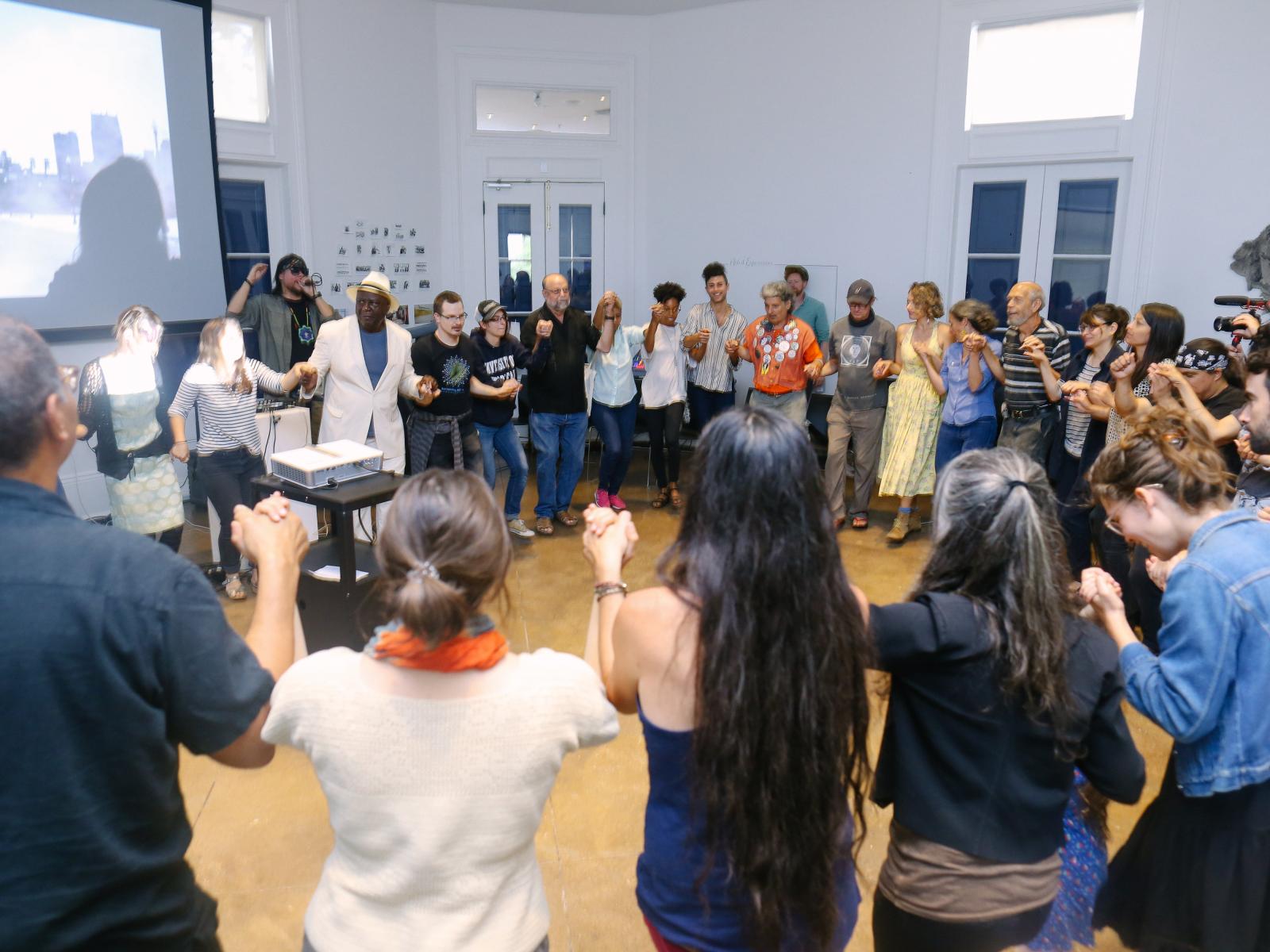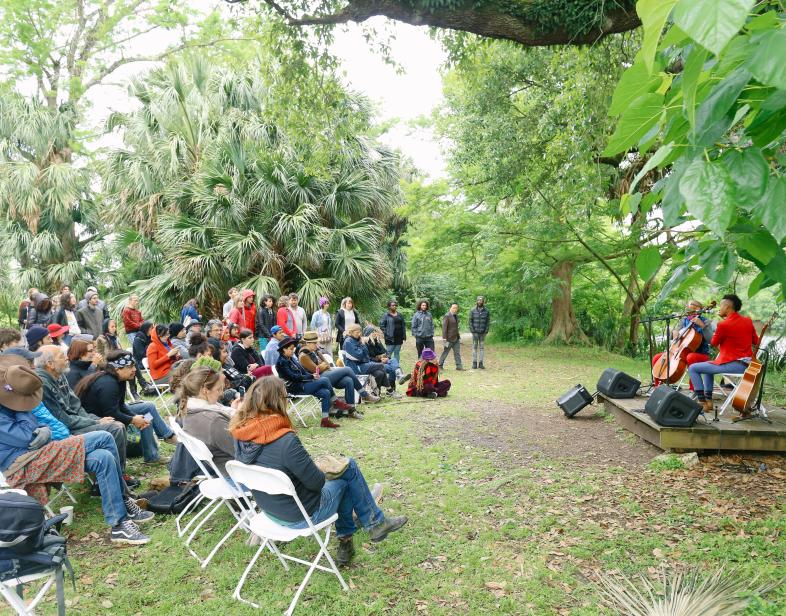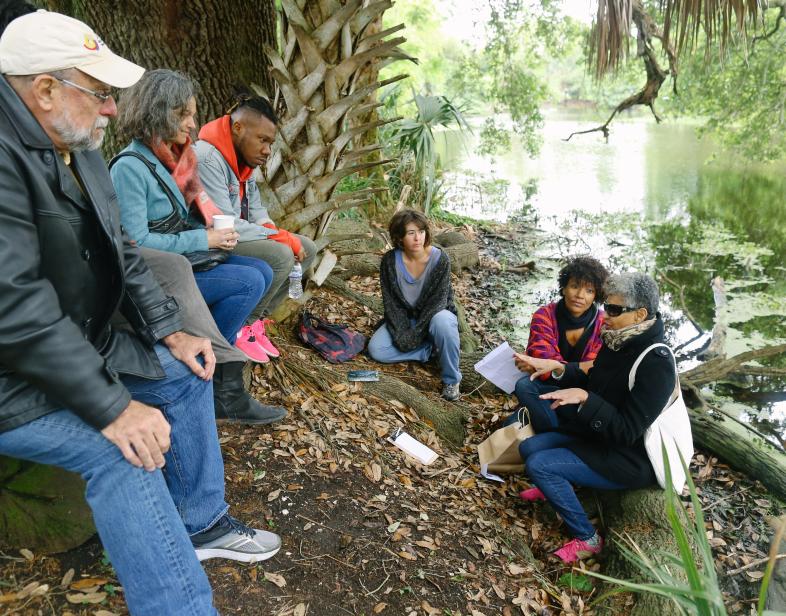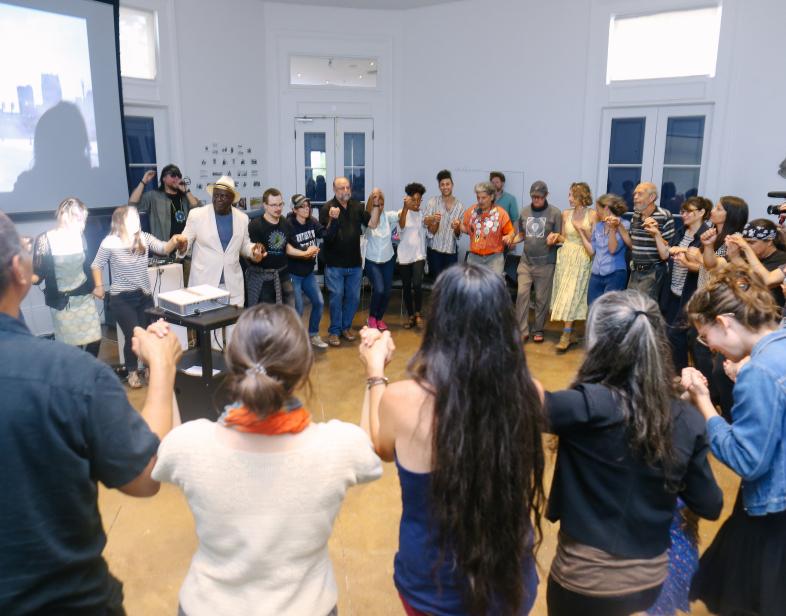An Overview Of Our Solution
At the root of the climate crisis is a deep cultural crisis; our society needs artists, scientists, educators and the institutions that support them to imagine, inspire and innovate a transition to a more equitable and sustainable existence. Yet with our cultural crisis comes massive defunding of the public sector, which has led desperate institutions to accept funding from and branding of oil & gas corporations. How can we envision and design a sustainable future when our culture endorses the lies of an industry that threatens our survival?
Enter Fossil Free Fest, a festival of art, music, films, food and conversations about the ethics and complexities of funding art and education with fossil fuel money. It’s a new kind of public space, a journey and a proposal to explore our complicity, agency and power when it comes to our culture, money and climate change.
- Population Impacted: 360,000
- Continent: North America
Context Analysis
In the New Orleans aquarium, endangered sea turtles swim around a replica of an oil rig. In a region with the fastest land loss in the world (16.6 sq. miles/year), Shell, a company that refuses to close 10,000 miles of old canals that spur wetland loss, boasts that its funding of the Jazz and Heritage Festival Presented by Shell makes our communities “resilient” and “sustainable”. This year, Entergy, our private-public utility, withheld a $20K donation from a local radio station in admitted retribution for their reporting on protests against their proposed fracked gas plant. Our dependence on these funds and placement of these logos on our museums, schools, science centers and festivals signs away our voice and grants this industry a “social license to operate”, a term defined by a BP Vice President as an indication that “society has sanctioned the actions of the company, trusting that the benefits of its operations outweigh the costs”. This relationship is akin to Stockholm Syndrome.
Describe the technical solution you wanted the target audience to adopt
In 2010, the US gov't made it illegal to place tobacco logos on cultural institutions, rightly recognizing the logos as propaganda. The funding of institutions by the oil industry represents a similar conflict of interest and an inherent contradiction: the financial sustainability of our institutions cannot come at the expense of our planet. Fossil Free Fest was a process and praxis to recognize that our society’s transition out of the Fossil Fuel Era is a joyous event worthy of festivity and celebration alongside deep reckoning. Artists, educators, scientists and the general public were trained to see the ubiquitous logos hidden in plain sight, to acknowledge our individual and institutional complicity in climate change, to recognize that with complicity comes responsibility and agency to revoke our complicity, and to commit to action by revoking the industry’s social license by joining a Fossil Free Super PAC, a network of institutions who decline funding from the oil industry.
Type of intervention
Describe your behavioral intervention
This April, a spokesperson for Shell said, unironically, that “climate change is a complex societal challenge that should be addressed through sound government policy and cultural change to drive low-carbon choices for businesses and consumers, not by the courts.” This accidental call-to-action issued to our cultural institutions could not be stronger.
Our position is not neutral. According to the American Association of Museums’ code of ethics, “It is incumbent on museums to be resources for humankind and in all their activities to foster an informed appreciation of the rich and diverse world we have inherited. It is also incumbent upon them to preserve that inheritance for posterity. [...] Loyalty to the mission of the museum and to the public it serves is the essence of museum work, whether volunteer or paid. Where conflicts of interest arise—actual, potential or perceived—the duty of loyalty must never be compromised.”
The role and responsibility of museums to society couldn’t be clearer, yet we rarely dedicate time and space to examine the connection between our work and the operations of our funders. How can we artists, administrators and educators fulfill our missions if we are afraid that we will impoverish our institutions and sabotage our livelihoods by speaking the truth? As society transitions from reliance on fossil fuels, liberated institutions could inspire, articulate values and communicate complex considerations to the public.
As needed, please explain the type of intervention in more detail
In New Orleans, most institutions of art and culture are sponsored and branded by the oil industry:
New Orleans Center for the Creative Arts Chevron Forum, The Helis Foundation Galleries at the Contemporary Arts Center and The Helis Foundation Chief Curator of Contemporary Art, New Orleans Jazz and Heritage Festival Presented by Shell, French Quarter Fest Presented by Chevron, Prospect New Orleans presented “Basquiat and the Bayou Presented by the Helis Foundation”; Ogden Museum of Southern Art, New Orleans Museum of Art, Historic New Orleans Collection, WWOZ, WWNO, New Orleans Film Festival, WWII Museum, the Audubon Zoo, Aquarium and Botanical Gardens, and the list goes on. These local signals are indicative of a global condition.
Describe your implementation
In April 2018, three weeks prior to the New Orleans Jazz and Heritage Festival Presented by Shell and one week prior to French Quarter Festival Presented by Chevron (which was interrupted by an oil spill on the Mississippi River, directly in front of their festivities), we launched the first iteration of the Fest. This week-long festival presented four evenings of ten film screenings and three days of visual art, performance, poetry, music, meals, visioning workshops, three keynotes, an environmental justice tour of Cancer Alley, and lots of conversation, all free and open to the public. We saw over 1,100 distinct tickets reserved and many others attending without having registered.
The Fest spanned three venues in addition to the environmental justice bus tour: the Broad Theater, a movie theater; Joan Mitchell Center, an arts center; and Grow Dat Youth Farm, a permaculture urban farm in the fecund City Park. Under the shade of live oak trees and in the comfort of JMC, participants engaged in a myriad of participatory activities organized into a journey through the themes of ‘Equity’ on Day 1, ‘Complicity’ on Day 2, and ‘Vision to Action’ on Day 3. Day 1 asked: Who is most harmed by the actions of the fossil fuel industry? After 300 years of an extractive culture and economy, how can we begin to move our society toward a sustainable and equitable relationship between life, labor and land? Day 2 asked: Does our acceptance of fundings permit oil companies a ‘social license to operate’? What is our responsibility as individuals and institutions when it comes to art, education and climate change? Day 3 asked: How do we build a sustainable life, labor and practice? Where do we want to go from here? How do we get there?
Behavior change begins with the awareness that we have a problem and a feeling of agency to fix it. One of the cascades from FFF has been the creation of a Fossil Free Super PAC, an alliance of institutions who commit to decline fossil fuel funding.
External connections
Fossil Free Fest was intentionally designed to unite people across race, class and occupation: culture workers, oil industry workers, administrators, scientists, educators, and funders. We were thrilled to see people in attendance from all of these backgrounds.
Partners included Antenna, Gulf Restoration Network, New Orleans Center for the Gulf South at Tulane University, Alliance for Affordable Energy, A Studio in the Woods, EnergyWise, LA Bucket Brigade, Deep South Center for Environmental Justice, Hidden History Tours, 350.org, Joan Mitchell Center, Grow Dat Youth Farm, OffBeat Magazine, Community Printshop & Darkroom, CultureStrike, Working Films, Blights Out, Another Gulf is Possible, The Green Project, and NOVAC.
My five-year dream of launching Fossil Free Fest was made possible thanks in large part to the willingness of my employer, Antenna, to serve as the organizational container to fiscally sponsor and present the Fest. Under the 501c3 of our small non-profit (~$300,000 annual budget) I raised $129,000 in six months, proving the national excitement around this issue. All funding was sourced from funders with environmental and social justice at the core of their missions: Chorus Foundation, Solidaire Network, Lush Foundation, and The Nathan Cummings Foundation. Our ability to fully fund our budget was an important affirmation of our central concern: that it IS possible to fund our work and our societies without sacrificing our ethics and dignity.
Who adopted the desired behaviors and to what degree?
We are in discussion with five local arts and humanities organizations about joining the Fossil Free Super PAC. This PAC will commit to reject oil funding and fundraise together on some occasions. By joining a movement, we will achieve, raise and reach more than our institutions in isolation. We would divide proceeds equally and contribute a percentage to local environmental justice work.
We received so many incredible statements of gratitude from participants, many of whom said that they had never before considered the points we were making. Here’s quote from one participant: “Feeling physically tired but more inspired to take action with my art, activism and life in general…you and your organizing team put on such a beautiful model of relationship building and envisioning a change that can really become a reality. Thank you. At the risk of over-indulgence, I was a bit stuck in many places in my life around these topics. But no more! Just transitions of all kinds, here we come!”
How did you impact natural resource use and greenhouse gas emissions?
In all of our organizing we were intentional about using only caterers with sustainability at the core of their mission and providing only biodegradable and compostable flatware. All of our printed material was on post-consumer paper. We worked very hard to eliminate plastics and did not provide plastic bottles, plates or utensils. Even our tote bags were printed by EnviroTote on 100% recycled cotton. The majority of our speakers were local or regional. We provided travel stipends to encourage folks traveling from Texas and Georgia to carpool rather than fly. We made an effort to power the final day with solar power but the logistics were incredibly complicated and were disappointed to be unsuccessful in the end. However, we did commission an artist, Hannah Chalew, to design a solar-powered green architecture sculpture, complete with solar-powered grow lights and irrigation system. The sculpture is part of her experimental process to bring her studio off the grid.
What were some of the resulting co-benefits?
Reckoning with climate change means reckoning with ourselves, our inseparability from this planet and our 300-year old extractive culture and economy. Extractivism means that we have a non-reciprocal relationship with each other and with the world at large. We take from the earth, but we don’t give back to it. We take from each other but don’t give back. Or when we do it comes with caveats, terms, logos, brands.
It is perhaps absurd that a place that endures climate disaster first-hand on a daily basis could be so bamboozled. But when one is born and bred on the belief that the oil industry is everything, is everyone, is eternal, it’s hard to see the woods for the trees. The industry’s billions do not mitigate the extreme poverty and vulnerability of our people, even for those who work for the industry. We deserve better. We need to return balance and integrity to our financial, ecological and social relationships and to do this, we must unite across racial, class and professional divides. FFF is just the beginning.
Sustainability
The project does rely on grant funding in order to make it free and open to the public and still pay all presenters, keynotes and artists a fair wage. It is important to us for this event to be free so as to reach the widest and most diverse audience, particularly those who are not the "usual suspects" in environmental causes. By being free, the event allows people to take a risk in attending something that they are not already fully sold on. Financing FFF was far easier in fact than funding other organizations I have managed. I believe this is because people are thirsty for creative and bold approaches to consciousness raising and because this subject is rarely given so much time and consideration.
Return on investment
The Fest cost $129,000 to implement, including $30,000 for the production and printing of a publication, which is currently in progress. We believe that the event was well worth the money due to the incredible feedback we have received from participants. We are in the process of circulating a survey to all participants to get even clearer data on their experience.
How could we successfully replicate this solution elsewhere?
It is our hope that Fossil Free Fest will be replicated in sacrifice zones and extraction hubs around the US and abroad. Our next steps involve the establishment of an Advisory Council who could oversee the continuation of this highly successful model. Additional needs would simply be funding!
